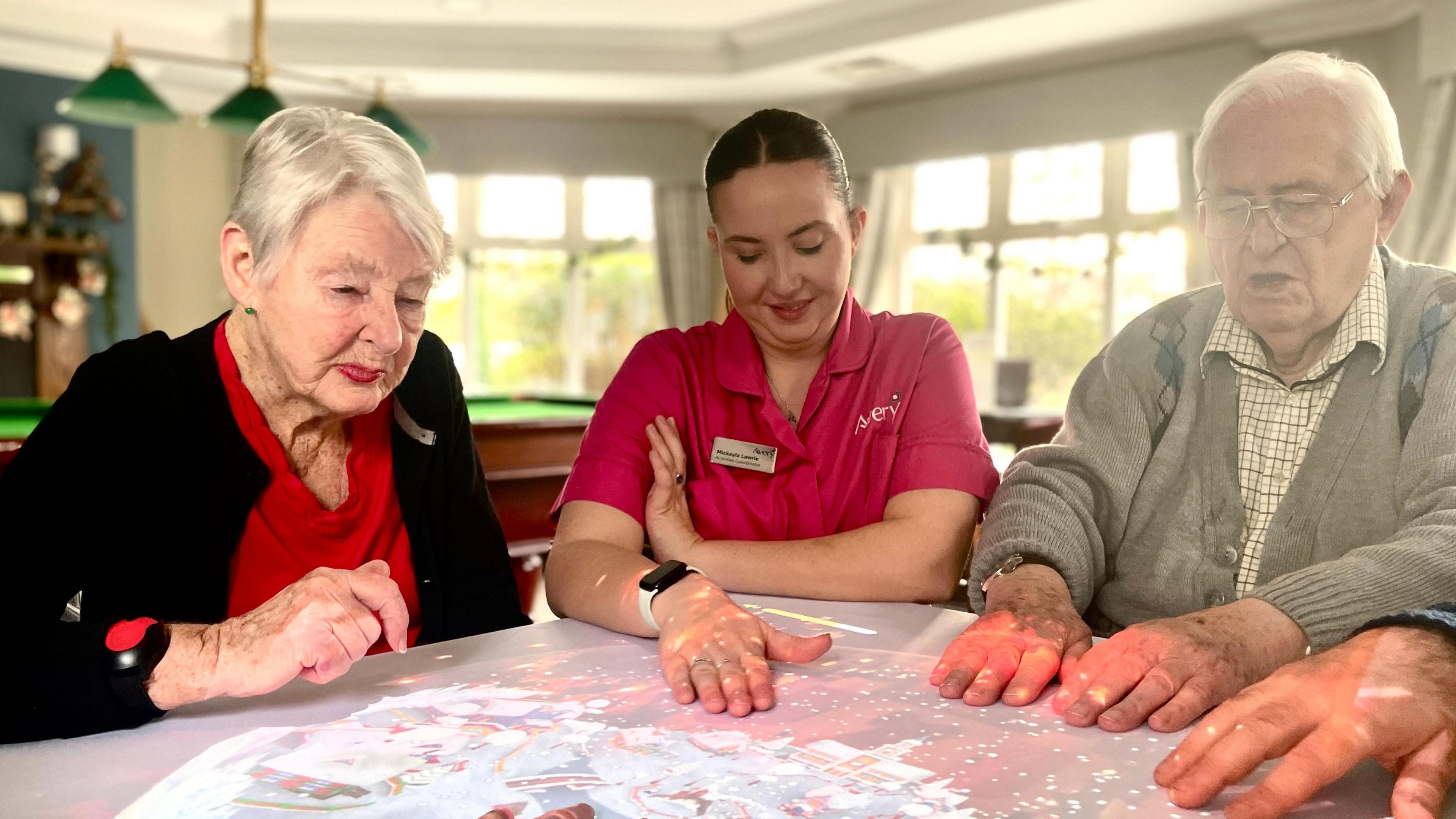Light technology engages people with dementia

Interactive light technologies can help people living with dementia engage with others
- Published
A Kent-based company is using light technology to engage people living with dementia.
Social-Ability, in Tonbridge, provides interactive light technology for care homes and hospitals.
The company has created interactive games that can be projected onto surfaces such as tables, walls and ceilings.
John Ramsay, managing director, said: "It's possible for people living with dementia to lead happy, fulfilling lives when they're supported with the right resources."
The company said its users had seen significant improvements in social wellbeing and care homes had seen a reduction in antipsychotic drug use after using the technology.
A spokesperson said that by engaging their senses in comfortable environments, light activities can prompt memory recall and bring people real happiness.
Mr Ramsay was inspired by his experience of caring for his father, who had dementia.
"We are tapping into the joy and happiness that still exists for people with dementia," he added.
"Our technology with interactive lights is creating incredible engagement."
'Everyone can get involved'

"We are tapping into the joy and happiness that still exists for people with dementia," said Mr Ramsay
Mickayla Lawrie, manager at Avery Healthcare's Guildford House Care Home, said: "It brings everyone together and supports our carers, creating an experience where everyone can get involved. It engages them, helps them focus, brings calmness, and makes them happy."
NHS research shows there are more than 944,000 people in the UK - one in 11 people over the age of 65 - who have dementia.
The number of people with dementia is increasing because people are living longer. It is estimated that by 2030, the number of people with dementia in the UK will be more than one million.
The Alzheimer's Society say antipsychotic drugs may be prescribed for people with dementia who develop changes such as aggression and psychosis, but usually only after other drugs have been tried.
Follow BBC Kent on Facebook, external, on X, external, and on Instagram, external. Send your story ideas to southeasttoday@bbc.co.uk, external or WhatsApp us on 08081 002250.
Related topics
Related stories
- Published26 August 2024

- Published17 October 2024

- Published8 March 2024
